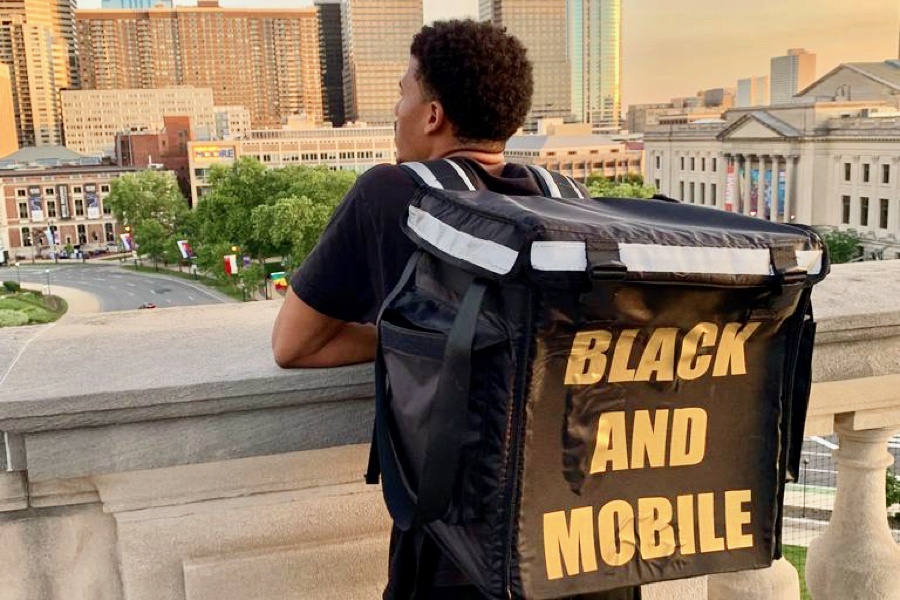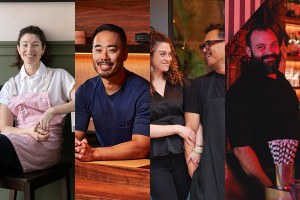Black and Mobile Is Philly’s New Delivery Service for Black-Owned Restaurants
A new local start-up is bringing Philly's black-owned restaurants right to your doorstep.
David Cabello dropped out of Shippensburg University’s College of Business in 2016. He was there to learn science of business, to maybe start a black-owned business of his own, or even help ones that already exist in the black community. Issue was, he didn’t feel that the white professors at his school gave him the tools to do so.
“How the hell would they know what the black community needs?” Cabello says. “Only 2.5 percent business in Philly are black-owned, so I feel like college is just us teaching us how to work for the white man for the rest of your life, and I didn’t want to do that.”
When he came home, he made a living by delivering for a black-owned bookstore, as well as UberEats, Caviar, and Postmates. He says he made $1,100 in under 48 hours doing deliveries for Caviar, which is how he came to realize the potential in Philly’s delivery service market.
“I noticed with these other food delivery services that unless you know the exact name of the black-owned businesses, it’s really hard to find them,” Cabello says. So in 2017, he began working on his own delivery service. Black and Mobile launched in February of 2019 and he delivered for Country Cookin’ — a soul food restaurant in North Philly owned by Saudia Shuler. Sometime this August, the full website will launch with a full roster of black-owned restaurants around the city.
All eyes are on racial inequity in the restaurant industry lately, be it in the workplace, in food media, in award ceremonies. Locally, there’s been a push to support black-owned restaurants and chefs in Philly, as could be seen during June’s 15-day black Restaurant Week. The problem is that some people aren’t able to travel to these restaurants. Cabello is eliminating that issue by having, “the culture delivered to their door” — the “culture” in this case being soul food, Carribbean food, BBQ, and all the other cuisines associated with black food culture.
“With my platform we make it easy to find black-owned businesses — there are no more excuses,” says Cabello. “We locate every black-owned restaurant and we put them on our site. That way if you want to support them, we’ll hire someone from the community and they’ll bring it to your door.”
As of now, it’s just Cabello and his brother doing deliveries, but as his clientele grows so will his staff. He hopes to hire 10 to 15 people this year and one day have thousands of workers across the country.
“We get to create employment opportunities, economics and unity — that’s what Philly needs,” says Cabello. “White owned businesses don’t need the capital and support that black-owned business need. I’ll probably open it up to [non-black-owned businesses] in the future, but right now I want the black community to thrive because we need that support. Once we get more Black-owned businesses around the nation — at least over a 1,000 or 2,000 black business — then we will think about expanding, because I’d be a fool to turn down a Walmart or other places that are offering me money when I’m established.”
There have been roadblocks: “I have a lot of black-owned businesses that don’t answer me,” he says. “I actually have more white-owned business reach out to me about my platform than black-owned businesses. Just because I’m promoting black-owned businesses and trying to support them doesn’t mean everyone in the city is on that mindset.”
He continued, “There are always challenges, but I’m not the type to give up. My business will be around for a very long time and we’re going to evolve into more than food. Food is just the start.”



